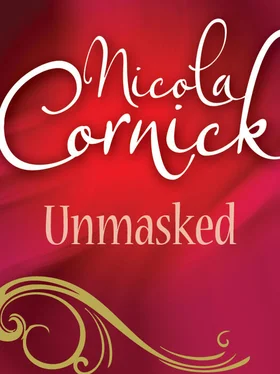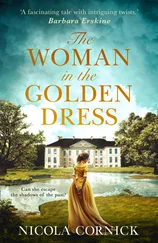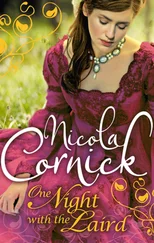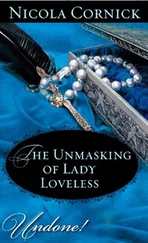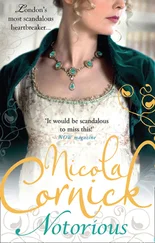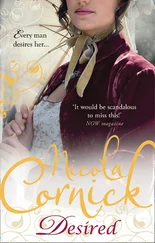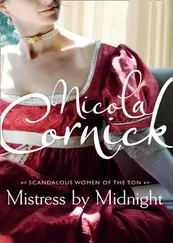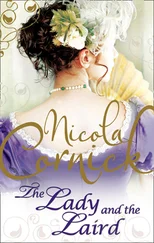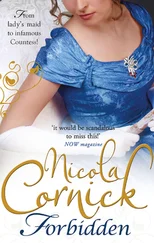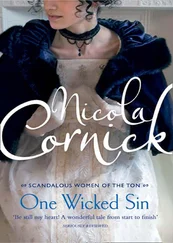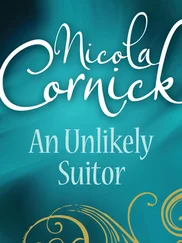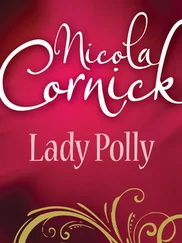He shifted, uncomfortable with both his thoughts and the physical effect that they had on him. He had found crossing swords with Mari intensely stimulating. He had admired the coolness with which she had countered his attack and the manner in which she had weighed the odds and decided which matters to concede and where to fight him. She was a clever strategist and he relished the game between them. And since they possessed such a powerful mutual awareness, he would use that attraction to bring her down. He would get close to her. He would seduce the truth from her. And he would not forget for a moment that this was all in the line of duty. In playing the game he would be able to slake his desire for her and then the white-hot passion that seared him would burn itself out.
“She turned you down then,” Charles Cole said in his ear, with a certain satisfaction.
Nick straightened up. “She did. In no uncertain terms.”
Charles laughed. “I did warn you,” he said. “She’s as cold as the driven snow. Always has been.”
Nick raised his brows. “Does she have many disappointed suitors then?”
“Plenty of men are interested in her fortune,” Charles said, “even if she is a little gray mouse of a woman.”
Nick looked at him. Charles was a man, albeit an apparently happily married one. Could he not see how alluring Marina Osborne was if one looked beneath the dowdiness of her attire? But perhaps he could not. Charles skated across the surface of life, seldom seeking deep meaning. He had been like that for as long as Nick had known him. Perhaps he could not see the rich curves and tempting lines of Mari Osborne’s body and perhaps it was a good thing, too, for Nick had a powerful feeling that he would want to take any man who looked covetously on Marina Osborne and pull his neck cloth so tight it choked him.
With a palpable effort he forced himself to relax. His feelings were becoming too involved and it was clouding his judgment. This was precisely what had happened to him at the Hen and Vulture when Mari’s warmth, the touch and the taste of her, had invaded his senses and played havoc with his judgment. She had played him for a fool then. It would not happen again. Now they would play on his terms, not hers.
He watched as Mari made her way off the dance floor and disappeared through the doors that opened on to the terrace. Her gray dress blended in with the pale shadows and she was gone from his sight. With a slight jolt Nick realized that Mari’s deliberately drab appearance was as much a disguise in its way as the blond wig and mask had been at the Hen and Vulture. She was trying to efface herself, perhaps to escape the fortune hunters, perhaps for another reason. Could she be deliberately creating a persona as far from that of Glory, the female hellion, as possible?
“I think,” Charles said suddenly, surprisingly, “that Mrs. Osborne might be shy. She is not at ease in social situations. I have often observed that she would prefer to avoid gatherings such as this.”
Nick reflected cynically that Charles might have made an interesting point—that Mari Osborne avoided company—but attributed it to the wrong reasons. No woman who dressed as a courtesan and picked men up in a tavern like the Hen and Vulture could possibly be shy, but again she might be deliberately playing a role that was the opposite of the highwaywoman heroine, Glory.
“Well, if she is shy, then she is most unlike your cousin,” he said, nodding toward Lady Hester Berry, the vivid center of a group of male admirers further down the room.
“Chalk and cheese,” Charles agreed. “Poor John Teague—” He indicated an older man standing slightly apart from the group and watching with an air of weary amusement. “He never gets a chance. He’s been in love with Hester for years but I think she barely sees him.”
Teague glanced toward them and Charles beckoned him over. “Come on,” he said to Nick. “There’s better refreshment in my study than you’ll find for Laura’s guests. And Teague has lived in this area awhile. You may find he can throw light on your case.”
They repaired to Charles’s study, a room off the hall where Charles had stashed a very fine bottle of brandy against the need to fortify himself to deal with his cousins.
“For,” he said wryly, “Henry and Faye may be family but I fear that I have little in common with them and Faye will try to foist her daughter on any or all of my male guests, like a fishwife pushing her wares.”
“A shame,” John Teague said lazily, accepting a glass of brandy and folding his long length into an armchair, “for Miss Cole is a fetching little chit—” He broke off to see Charles’s quizzical eye upon him. “No, I do not have an interest there myself!” he said hastily. “You know me better than that, Charles.”
Nick had been watching Teague and weighing up how far to take him into his confidence. Charles had introduced the older man as a friend and indicated that he was reliable, but Nick liked to make his own mind up on such things. Certainly Teague, with his shrewd expression and open manner, seemed pleasant enough. But even at Eton, Charles had been quick to trust, and whilst it was an admirable trait to look for the good in everyone, it could be damnably awkward if you found that the man you had thought honorable turned out to be less than sound. So Nick said nothing of Rashleigh’s murder, merely indicating that he had been sent by Lord Hawkesbury to investigate the civil disturbance caused by the Glory Girls. Teague raised his brows and said he was surprised that Hawkesbury should concern himself with such a small domestic matter.
“They are a bunch of petty criminals, highwaymen, no more,” Teague said. “Gossip has it that they are females, but I doubt it very much.”
“Gossip has it that they are gently bred females,” Charles interposed, “and I think there may be some truth in it.”
“Do they ride sidesaddle?” Nick asked.
Charles laughed. “Not they! They ride astride like a pack of huntsmen!”
Teague shot him a look from beneath lowered brows. “There was nothing gently bred or remotely feminine about the felons who held up my coach two weeks ago, old chap,” he said. “The ringleader had the gruffest voice this side of the alehouse and sat his horse like a trooper.”
“What did they stop you for?” Nick asked mildly.
Teague turned his shrewd gray eyes back to him. Nick remembered what Charles had said about Teague being one of Hester Berry’s suitors and remembered that he had almost pitied him to hear it, but now, seeing the keen intelligence behind those eyes, he started to wonder if Hester knew John Teague very well at all. He did not seem the kind to tolerate her flirting with a great deal of equanimity.
“What do you mean, old fellow?” Teague asked.
Playing for time, Nick thought, and wondered why.
“I understand that the Glory Girls always have a reason for what they do,” he explained. “The redistribution of wealth to the poor, for example, if a mill owner is cheating his workers. Or the liberation of the oppressed if farm laborers are forced to work long hours.”
Teague gave a crack of laughter. “If you say so, Falconer. All they wished to liberate in my case was my money.”
Nick pulled a face. “Are you sure it was the Glory Girls?”
Teague shifted and took a mouthful of brandy. “Certain. They boasted of it.”
Nick shrugged and let it pass. It was odd that in Teague’s case there appeared to have been no ulterior motive for the attack when all the other cases he had read about had been prompted by some injustice. But perhaps the gang that had attacked Teague were impostors trading on the Glory Girls’ name and reputation. That happened often enough when one set of thieves wanted to borrow some of the luster of another.
Читать дальше
